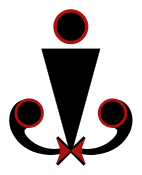New competition authority up and running as from January 1, 2009 (December 2008)

Article 95 of the law 2008-776 dated august 4, 2008 known as the law for the modernization of the economy (the “lme”) established a new competition authority called autorité de la concurrence (the “competition authority”). ordinance 2008-1161 of november 13, 2008 (the “ordinance”) implemented the creation of this competition authority which is vested with expanded powers and resources to control anti-competitive practices.
Pursuant to the provisions of the LME, the Competition Authority takes over the Minister of the Economy’s task to review merger applications and to issue prohibition or clearance decisions (see the article entitled “More Competition as a Growth Instrument in the Bill for the Modernization of the Economy” published in our June 2008 e-newsletter). The Ordinance goes one step further by vesting the Competition Authority with more powers than the Competition Council which it replaces (1). This, however, does not prejudice the rights of the persons subject to search and seizure operations, such rights being even strengthened to a certain extent (2).
1- POWERS AND JURISDICTION OF THE NEW COMPETITION AUTHORITY
a) Transfer of powers from the Minister of the Economy to the Competition Authority
For years, the French competition regulation system, structured around a duality of functions shared between the Minister of the Economy and the Competition Council, has been at the center of criticisms notably in comparison to the systems existing everywhere else in Europe. It must be said that the review and control of most competition-related issues fell within the scope of competence of the Minister of the Economy whose approach was most often based on political considerations rather than on legal or economic ones. The reform introduced by the LME brings the changes longed for by authorized circles and establishes finally a competition enforcement agency vested with true powers of control.
The Competition Authority has full jurisdiction over merger control issues
The LME vests the new Competition Authority with the power to review all merger applications which used to be so far examined by the Minister of the Economy who simply sought non-binding opinions from the Competition Council.
The new Competition Authority shall, alone, review merger applications, establish overall competition balances, decide whether to authorize projected mergers or define the commitments to be taken by the concerned entities. The Minister shall retain the possibility to derogate from the opinion of the Competition Authority but only for duly reasoned motives of public interests other than the protection of competition.
National competition-related issues are primarily managed by the Competition Authority
In order to allow the Competition Authority to concentrate on complex domestic competition issues, Article 2 – XII of the Ordinance grants to the Minister of the Economy an injunctive and settlement power with respect to local anti-competitive practices (i.e. anti-competitive practices considered of lesser importance). Such injunctive and settlement power only concerns:
- Practices that are not considered as prohibited concerted practices or abuses of dominant position;
- Companies whose sales individually do not exceed 50 million Euros and 100 million Euros for all companies participating in the anti-competitive practice(s).
The Minister of the Economy can propose to the companies participating in the anti-competitive practice(s) a settlement up to 75,000 Euros (or 5% of the turnover achieved in France if this figure is less than 75,000 Euros). In any event, the Minister will not be entitled to take injunctive and settlement measures if the anti-competitive practice(s) in question is/are investigated by the Competition Authority.
b) The Competition Authority has extended investigative powers
Agents and investigators allocated to the Competition Authority
Before the publication of the Ordinance, the Competition Council had the mission to track down anti-competitive practices – notably agreement on prices and allocation of market shares – but it did not have any internal investigation service. It would prosecute the cases submitted to it by the agents of the Direction générale de la consommation, de la concurrence et de la répression des fraudes (General Directorate for competition, consumer protection and frauds or “DGCCRF”), one of the Directorates of the Ministry of the Economy.
The Competition Authority pursues the same mission as the Competition Council but it is endowed with an investigation service comprising (i) investigators from the national office of the DGCCRF and (ii) rapporteurs généraux (case handlers) who used to work for the Competition Council, and can, therefore, launch and conduct investigations on its own initiative.
The Minister of the Economy must systematically inform the Competition Authority of any and all search and seizure operations carried out
Pursuant to Article L.450-5 of the French Commercial Code (as amended by the Ordinance), the Competition Authority’s rapporteur general (chief case handler) must be informed in advance of the investigations that the Minister of the Economy intends to launch. He can, within a period to be set forth by decree, either lead the investigations himself or let the DGCCRF investigate, notably in respect of local anti-competitive practices.
The rapporteur general must be immediately informed of the outcome of the investigations conducted by the DGCCRF agents and may recommend to the Competition Authority to take up the issue on its own initiative.
The Competition Authority has the power to sanction companies obstructing the investigations and inquiries it conducts.
If a company refuses to attend a meeting or does not respond within the allocated timeline to a request for information made by an agent or investigator, the Competition Authority may, in accordance with Article L.464-2 4° V of the French Commercial Code, issue an injunction and impose a penalty for each day of non-compliance with the injunction.
In addition, when a company obstructs the investigations or inquiries being conducted (notably by providing inaccurate or incomplete information), the Competition Authority may, after having heard a representative of the company, impose a fine, the amount of which may not, however, exceed 1% of the global sales made by the company during any financial year closed since the financial year preceding that during which the anti-competitive practices were applied.
c) The Competition Authority may investigate on its own initiative any competition-related issues and make any useful recommendation to the Minister of the Economy
Pursuant to Article L.462-5-I of the French Commercial Code, as amended by Ordinance n°2008-1161, the Minister of the Economy and any company can request the Competition Authority to investigate a competition-related issue; yet, the Competition Authority may also start investigations on its own initiative, on proposal from the rapporteur général.
Article L.462-4 of the French Commercial Code stipulates “the Competition Authority may, on its own initiative, issue an opinion on any competition-related issue… It may also issue a recommendation requesting the Minister of the Economy or any other concerned Minister to take the measures necessary to improve competition in the markets”.
- ORDINANCE N°2008-1161STRENGHTHENS THE RIGHTS OF THE DEFENDANTS
- Clear separation between the inquiry/investigation phase and the decision-making phase
The investigation phase is managed by the Competition Authority’s investigation service (please see paragraph b) headed by a rapporteur général appointed by Decree of the Minister of the Economy. Therapporteur général or rapporteur général adjoint (deputy chief case handler) conducts the investigation and addresses to the investigated company a statement of objections detailing the identified anti-competitive practice(s). The decision is then made by the Competition Authority seating in plenary session or by its President or vice-President.
- The introduction of a two-tier recourse against search and seizure operations
Article 1 paragraph 6 of the Ordinance creates recourse to challenge the legality of the search and seizure orders issued by judges. Such recourse must be brought before the first President of the Court of Appeals having jurisdiction over the territory where the judge who ordered the search and seizure operations is located. Before the Ordinance, the person wishing to challenge the legality of search and seizure orders has no other choice but to lodge an appeal before the Cour de Cassation (French Supreme Court) and was, therefore, de facto deprived of a level of jurisdiction.
As a result of the above, the rights of defendants subject to search and seizure operations are considerably strengthened and, from a procedural perspective, it should be noted that it is not necessary to brief an avoué(i.e. an attorney authorized to appear before the Court of Appeals) to exercise this recourse.
The introduction of this recourse before the first President of the Court of Appeals had become necessary since the Ravon judgment rendered by the European Court of Human Rights on February 28, 2008 in which France was found guilty of violation of the European Convention on Human Rights because it failed to offer sufficient access to court to challenge the validity of orders authorizing search and seizure operations
In addition to this recourse enabling to challenge the legality of search and seizure orders, another recourse was created, allowing to challenge before the first President of the Court of Appeals the sequence of the search and seizures operations (Article 1 last paragraph of the Ordinance). Before the publication of the Ordinance, a request challenging the sequence of the search and seizure operations had to be filed with the judge who authorized said operations within two months from the notification of the search and seizure order (after this two month period of time, the order could only be appealed against before the Cour de Cassation). As such, a judge could be asked to review the search and seizures operations he/she had himself/herself ordered. This system was manifestly a breach of the principle of separation between “prosecuting”, “investigating” and “judging”. The right of recourse before the first President of the Court of Appeals is undoubtedly an improvement of the rights of the defendants.
It should also be noted that the Ordinance expressly sets forth that persons subject to search and seizure operations may be assisted during these operations by a legal counsel of their choice (Article L.450-4 of the French Commercial Code, fifth paragraph, second sentence).
While they confer extended powers to the new Competition Authority, the LME and the Ordinance also strengthen the rights of the defendant – which has been unanimously welcomed by lawyers and in-house counsels. The dual recourse created by the Ordinance guarantees that any request challenging the sequence of the search and seizure operations will be examined by the first President of the Court of Appeals, i.e. a person who should act with more objectivity than the judge who authorized the challenged operations. Let us, however, hope that the first President of the Court of Appeals will have enough time and resources to duly fulfill this new mission.
